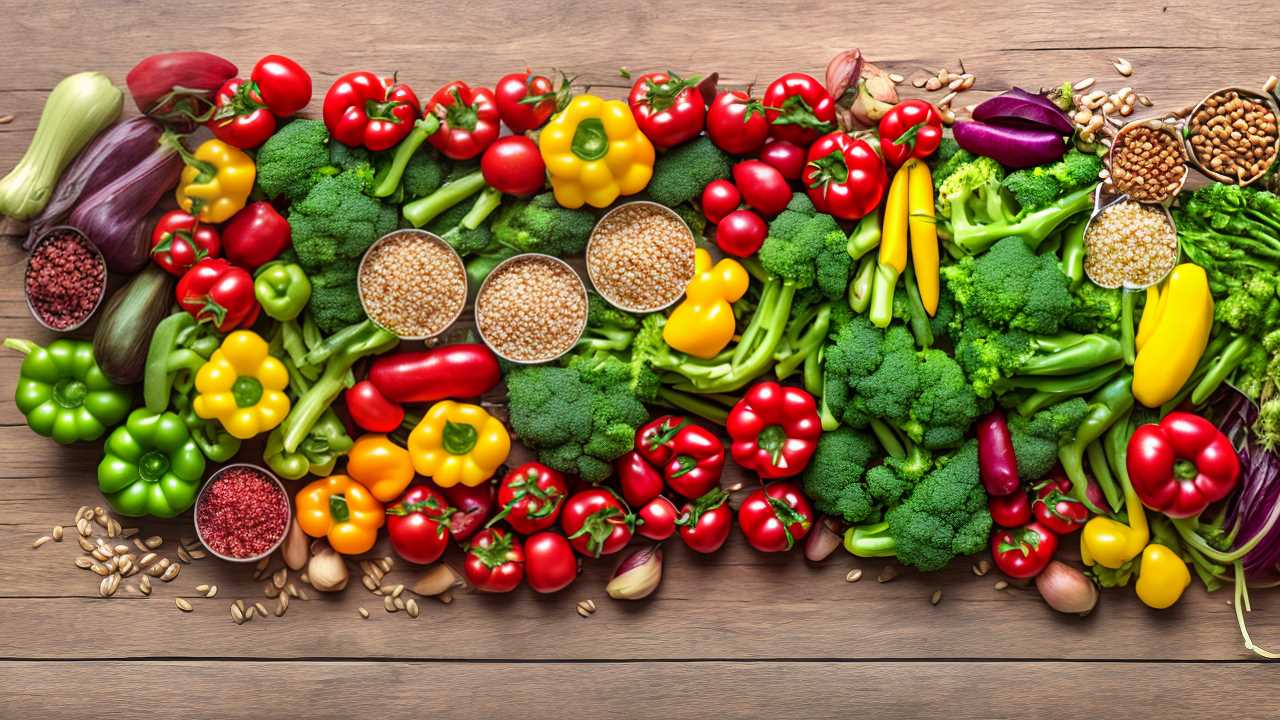Health
How Can I Manage My Diabetes Through Diet?
Managing diabetes requires careful attention to diet, with a focus on carbohydrates. Complex carbs are preferred over simple ones to prevent blood sugar spikes.

To manage your diabetes through diet, pay close attention to carbohydrates. Choose complex carbs over simple ones to avoid sudden blood sugar spikes. Portion control is essential; smaller plates can help you avoid overeating, while measuring food aids in understanding proper servings. Incorporate healthy fats from sources like avocados and nuts, as they stabilize blood sugar and support heart health. Additionally, focus on fiber-rich foods like whole grains, fruits, and vegetables, which help regulate blood sugar levels and keep you full longer. Embracing meal planning will streamline your choices and foster healthier habits that benefit you every day. There’s more to investigate.
Understanding Carbohydrates
When you manage diabetes, understanding carbohydrates is essential because they directly impact your blood sugar levels. Carbohydrates break down into glucose, which your body uses for energy.
Different types of carbs affect your blood sugar differently. Simple carbohydrates, found in sugary snacks and drinks, can cause spikes, while complex carbohydrates, like whole grains and vegetables, release energy more slowly.
It’s important to read food labels and recognize how many carbohydrates are in each serving. By choosing healthier options and being mindful of your carb intake, you can maintain steadier blood sugar levels.
Importance of Portion Control
Understanding portion control is essential for effectively managing diabetes. By paying attention to serving sizes, you can better regulate your blood sugar levels.
It’s not just about what you eat, but how much you eat. Using smaller plates can help you serve less, making it easier to resist the temptation to overindulge. Additionally, measuring your food can give you a clearer idea of appropriate portions.

Remember, even healthy foods can contribute to weight gain when consumed in large amounts. Keeping a food diary can also be beneficial; it helps you track your intake and identify patterns.
Ultimately, mastering portion control can lead to better blood sugar management and overall health, making it a key strategy in your diabetes care plan.
Choosing Healthy Fats
Healthy fats play an essential role in managing diabetes and can improve your overall diet. When you choose healthy fats, you help keep your heart healthy and your blood sugar levels stable.
Focus on incorporating these types of fats into your meals:
- Avocados: Packed with monounsaturated fats, they promote heart health.
- Olive oil: A great source of healthy fats, it can enrich flavor and nutrition.
- Nuts and seeds: These provide essential nutrients and can curb hunger.
Incorporating Fiber-Rich Foods
Incorporating fiber-rich foods into your diet is essential for managing diabetes effectively, as they help regulate blood sugar levels and promote satiety. Foods like whole grains, legumes, fruits, and vegetables are excellent sources of fiber.
They slow down digestion, allowing for a more gradual release of glucose into your bloodstream. This can help prevent spikes in blood sugar, making it easier for you to maintain stable levels throughout the day.
Aim to include a variety of these foods in your meals and snacks. For instance, try adding beans to salads or choosing oatmeal for breakfast.

Meal Planning Strategies
Effective meal planning strategies can significantly simplify your journey in managing diabetes. By organizing your meals, you can maintain balanced blood sugar levels while enjoying a variety of foods.
Here are some practical tips to contemplate:
- Plan ahead: Set aside time each week to plan your meals and snacks, ensuring you include nutritious options.
- Portion control: Use measuring cups or a food scale to help you understand serving sizes, keeping your portions in check.
- Balanced meals: Aim for meals that include carbohydrates, protein, and healthy fats to stabilize your energy levels.
These strategies not only promote healthier eating habits but also make grocery shopping easier.
Frequently Asked Questions
Can I Eat Sweets if I Have Diabetes?
You can enjoy sweets occasionally, but moderation’s key. Choose smaller portions, and pair them with healthy foods to balance your meal. Always monitor your blood sugar to guarantee you stay within safe levels.
How Does Alcohol Affect My Blood Sugar Levels?
Did you know that about 25% of people with diabetes experience low blood sugar after drinking alcohol? It can cause unpredictable spikes and drops in your blood sugar, so always monitor your levels closely if you choose to drink.
Is It Safe to Follow a Vegetarian Diet With Diabetes?
Yes, it’s safe to follow a vegetarian diet with diabetes, as long as you’re mindful of your carbohydrate intake. Focus on whole grains, legumes, and plenty of vegetables to maintain balanced blood sugar levels.
Should I Count Net Carbs or Total Carbs?
In terms of counting carbs, you might think it’s a simple choice, but it’s not! For safety, focus on total carbs. It gives you a clearer picture of what your body’s dealing with!

How Can I Manage Diabetes While Eating Out?
When you’re eating out, choose grilled or baked options, skip the bread, and ask for dressings on the side. You can also share dishes to control portions and keep your blood sugar stable.

Hi, I’m Kyle Rivera, a news journalist and blog editor with the Daily Evening News. A TCU alum with a flair for storytelling, I spend my days uncovering impactful stories and my evenings exploring the realms of yoga, cycling, and whimsically bad poetry.
Travel is my escape; I’ve trekked from Tokyo’s neon lights to Iceland’s tranquil vistas. But no journey is complete without Mogli, my Golden Retriever, who’s redefining his breed standards in the most charming ways.
I love connecting with fellow travelers, yogis, cyclists, and anyone who enjoys a laugh at my poetic attempts. If you’re into stories that inspire, travel escapades, or just want to see what Mogli and I are up to, I’d love to hear from you on Instagram or Facebook. Let’s share tales and tips from around the globe!

